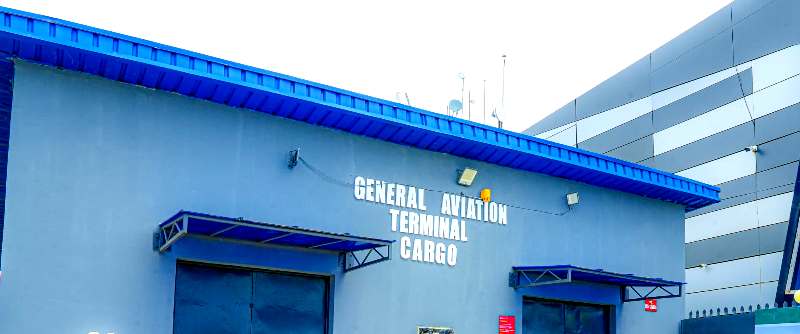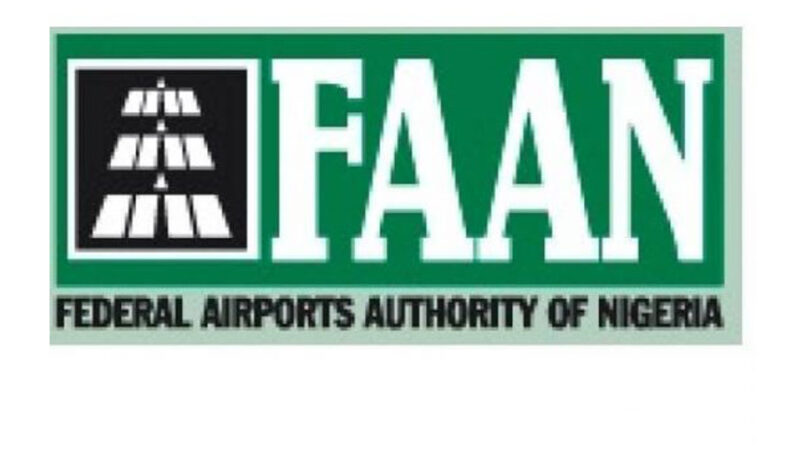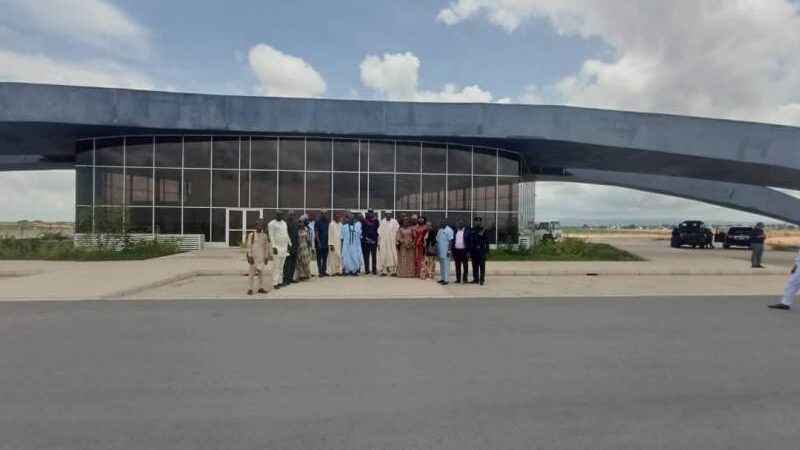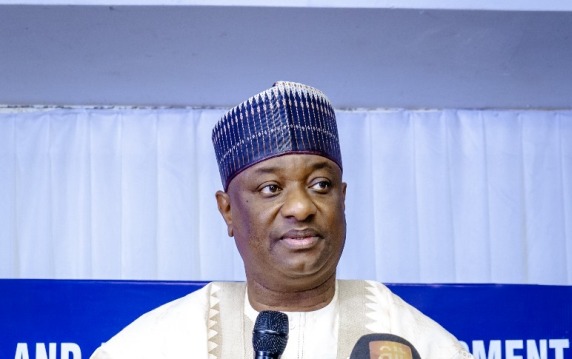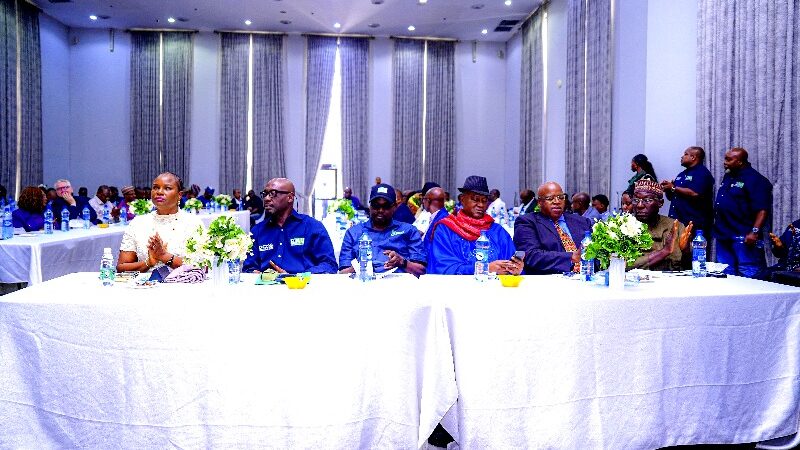How Nigeria’s Aviation Industry Can Survive

Measures that need to be taken to sustain the survival of Nigeria’s aviation industry was the focus of discussions at the 28th edition of the Annual Conference of the League of Airport & Aviation Correspondents (LAAC) held at Providence Hotel Ikeja, Lagos, under the theme, Aviation Survivability Amidst A Challenging Macro-Economic Environment.”
In his opening remarks, Chairman of the occasion and Chief Executive Officer of CITA Aviation Fuelling Limited, Dr. Thomas Ogungbangbe called for stimulation of economic growth for the industry to survive.
He also proposed efficient allocation of resources by prioritizing the maintenance and improvement of existing airports and essential infrastructure and ensuring that funds are allocated efficiently to enhance the overall travel ecosystem; encouragement of Public-Private Partnerships; development of integrated transportation plans that connect airports with other modes of transport, such as rail and road networks, facilitating easier access to airports and enhancing overall travel convenience and marketing and promotion of Nigeria as a tourist destination while providing incentives for airlines to increase routes to and from Nigeria.
Presenting his keynote speech, the Managing Director of Nigerian Airspace Management Agency (NAMA), Engr. Farouk Umar said: “To survive in this challenging environment, we must prioritize operational efficiency and cost management. This involves streamlining our processes, optimizing resource allocation, and embracing technologies that enhance efficiency. The aviation industry requires collaborative approach to operational efficiency and cost management.”
He said “innovative and technological approach is key to improving the survivability of our industry. They are the cornerstone of our survival. The digital transformation of aviation is not just a trend but a necessity. Implementing advanced technologies, leveraging artificial intelligence for predictive maintenance, and enhancing cybersecurity measures are critical steps. By embracing these technologies, we can improve safety, reduce delays, and enhance the overall economic performance of Nigeria’s aviation.”
Farouk also made a case for strengthening infrastructure saying that “robust and modern infrastructure is essential for the growth of our aviation sector. Our airports need more modern infrastructure to accommodate the present and future demands of airport terminals that support more efficient flight operations.”
Farouk further advocated for stakeholders’ collaboration and efficient pricing of services. “Our industry requires a very efficient pricing of products and services. It is a critical lever for enhancing affordability, driving competition, supporting infrastructural development, promoting sustainability, and improving operational efficiency. Price for services MUST reflect the value of these services,” he said.
In his presentation titled “Aviation Survivability In A Challenging Macroeconomic Environent,” the former Rector of Nigeria College of Aviation Technology, (NCAT), Zaria, Capt. Samuel Caulcrick suggested efficiency in optimized operations, reduced costs, and improve productivity; diversification by expanding services to include cargo, maintenance, and training; partnership in form of collaborating with other airlines, businesses, or government to share resources and risks; cost reduction through renegotiated contracts, operations consolidation, and cost-saving measures implementation; regional expansion by exploring opportunities in West Africa and the continent to increase revenue; customer engagement with focus on service quality, loyalty programmes, and targeted marketing to maintain customer base and innovation of leveraging technology to improve services, reduce costs and enhance customer experience as measures that can help Nigeria’s aviation industry to survive.
He equally proposed scenario planning involving developing strategies for potential future scenarios, including economic downturns or changes in government policies and adaptation by developing flexible business models to respond to changing market conditions.
According to him, stakeholders must approach the aviation ministry for government support where they can advocate for policies and incentives to reduce costs and increase access to low cost capital, efficiency in service delivery involving audit of the services rendered by the aviation government agencies as regards to undue costs incurred by air operators due to inefficiency in service deliveries and increased hours of operations. “There is need to elongate the operating hours of some of our airports,” he said.
Indentifying the sector’s challenges in his paper titled Infrastructure Impediments To Aviation Industry Growth, the Second Vice President of Aviation Safety Round Table Initiative (ASRTI), Dr. Alex Nwuba said: “We have not placed the required maintenance and training facilities to save significant costs. We have wrongly scaled our airports for which everyone will pay for the inefficiency, we have failed to maintain the training and development of our staff and most of all, we have failed to put in place the proper corporate governance structures that will bring about cost discipline, appropriate business management, growth and expansion models.”
Delivering a goodwill message from the Federal Competition and Consumer Protection Commission (FCCPC), the Head of Lagos Office, Mrs. Susie Onwuka stated that the commission is “eager and look forward to collaborating with industry players and regulatory agencies to identify and address consumer issues and anti-competitive practices that may impede the sector’s development. Let us work together to build a sustainable and consumer-centric aviation industry.”
In his input on forex challenges while moderating the panel session of the conference, the former Managing Director/Chief Executive of Federal Airports Authority of Nigeria (FAAN), Capt. Hamisu Yadudu said “if you solve the forex issues in aviation, almost all the problems of service providers will be solved and there will be less charges.” He equally emphasized why heads of airlines and government agencies as well as other service providers should endeavour to attend stakeholders for a like the LAAC conference so as to learn new ways of doing things and make their input in the industry’s policies and overall development.
Special Guest of Honour at the event, the Minister of Aviation & Aerospace Development, Festus Keyamo (SAN) noted that the problems of the industry are major. “The problems are major. We can’t solve all the problems overnight but I think every government should just take its own focal point, concentrate, do the best, and leave the rest for others to come. For us, we are looking at various issues.”
Unveiling the government’s intentions for Maintenance, Repair and Overall (MRO) facility, he said MRO is at the heart of the improvement of the local aviation industry, stating that discussions were already on. “People are already talking with us. I don’t want to let the cat out of the bag. Very soon, we are going to advertise and call for partnership. That is the only way to go. And I think we need to call in people with money,” he said, adding that government was expecting investors for a world-class MRO to maintain wide body aircraft and serve the whole of West and Central Africa.
“The Arabs are talking to us. The Chinese are talking to us. The Europeans are talking to us.
The Americans, they want to invest and you know why it has to be PPPs. It is difficult to establish an MRO at an independent venue, different from an existing airport. You can’t build it because you need a runway to get to an MRO. So, it is pretty difficult. So, you have to talk with us for us to give you one within one of our international airports. We are in the process of doing a master plan. We are going to mark out clear areas for MROs within the international airports. So, we are calling. I won’t say we are begging. We are telling you to come and make money. So, we are not begging for investment. Come and make money,” said Keyamo.
He further explained that establishing an MRO in Nigeria will save the country a lot of foreign exchange.
SEE MORE PHOTOS

